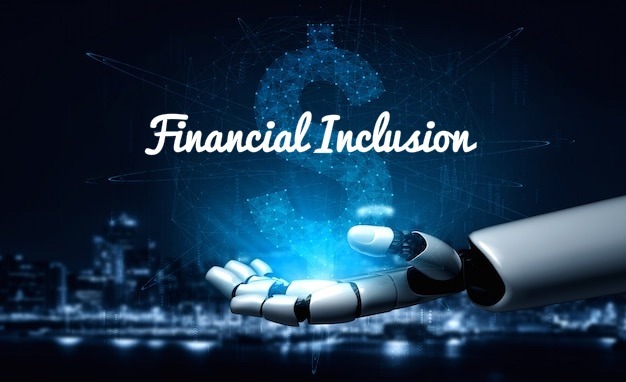

How AI Can Drive Financial Inclusion to New Heights
Financial inclusion, the accessibility and affordability of financial services for all individuals and businesses, is a critical factor in promoting economic growth and reducing poverty worldwide.
Despite significant progress in recent years, there are still billions of people around the globe who lack access to basic financial services.
However, with the rise of artificial intelligence (AI) technologies, there is a tremendous opportunity to accelerate financial inclusion efforts and bring financial services to underserved populations.
Let’s see how AI can further enhance financial inclusion and create a more inclusive and prosperous global economy.
Expanding Access to Financial Services
AI-powered solutions have the potential to revolutionize access to financial services for underserved populations. For instance, AI-powered chatbots and virtual assistants can provide personalized financial guidance and support, making financial information and services more accessible to individuals who may have limited literacy or financial knowledge.
Moreover, AI algorithms can assess creditworthiness using alternative data sources such as mobile phone usage or social media activity, enabling financial institutions to extend credit to individuals without traditional credit histories.
Enabling Digital Payments and Mobile Banking
AI technologies can facilitate the adoption of digital payment systems and mobile banking, which are crucial for financial inclusion. AI algorithms can analyze transaction data to detect fraud and ensure secure and reliable digital payments.
Furthermore, AI-powered recommendation systems can help individuals make informed financial decisions, such as choosing the right savings or investment products, thereby empowering them to manage their finances more effectively through mobile banking applications.
Enhancing Risk Assessment and Fraud Detection
One of the key challenges in extending financial services to underserved populations is the lack of reliable credit scoring mechanisms and the risk of fraud. AI can play a transformative role in this regard by leveraging big data analytics and machine learning algorithms. By analyzing vast amounts of data, including social media profiles, online behavior, and transaction history, AI can develop more accurate risk assessment models.
This can help financial institutions identify creditworthy individuals and provide them with affordable loans while minimizing risks. Moreover, AI algorithms can continuously monitor transactions, flagging suspicious activities and enabling timely fraud detection and prevention.
Personalized Financial Advice and Education
AI-powered tools can deliver personalized financial advice and education to individuals, empowering them to make informed financial decisions. Virtual financial advisors can assess an individual’s financial goals, income, and expenses to provide tailored recommendations on budgeting, savings, and investment strategies.
Through machine learning, these tools can continuously learn and adapt to users’ needs, delivering increasingly accurate and relevant advice over time.
Microfinance and Peer-to-Peer Lending
AI can significantly improve the efficiency and scalability of microfinance and peer-to-peer lending platforms. Leveraging AI algorithms will help these platforms automate and streamline the loan application process, reducing administrative burdens and lowering costs.
Additionally, AI can help match lenders and borrowers more effectively, increasing the chances of successful loan disbursement and repayment.
Conclusion
AI has the potential to be a game-changer in advancing financial inclusion globally. However, it is crucial to ensure that AI is deployed ethically and responsibly, addressing potential biases and safeguarding individuals’ data privacy.
With the right approach, AI can empower underserved populations, foster economic growth, and build a more inclusive and resilient global financial system.




